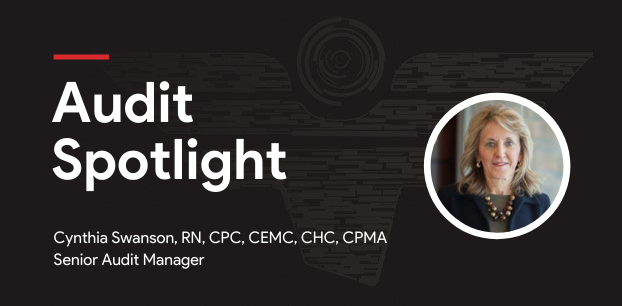
Audit of outpatient cataract surgery uncovers egregious charges
Background
ClaimDOC’ s comprehensive line-by-line auditing of claims uncovers errors that basic claim repricing and auto-adjudication does not catch, leading to greater savings to health plans and beneficiaries. Our audit team analyzes all types of healthcare claims for a variety of potential concerns including excessive usual and customary charges, duplication of claims, correct coding initiative edits, unbundling of services, and others. Our claims review is not intended to impact care decisions or medical practice.
In this Claims Audit Spotlight, we focus on hospital outpatient services related to coding, billing, and corresponding charges.
What are outpatient services?
Outpatient services are medical procedures or tests that can be done in a medical center without an overnight stay. Many procedures and tests can be performed in a few hours. Outpatient services may include:
- Treatment, such as certain procedures/surgery and chemotherapy.
- Diagnosis, such as radiology, laboratory, or other diagnostic or therapeutic testing.
- Wellness and prevention, such as counseling and other evaluation and management services.
- Rehabilitation, such as physical, occupational, or speech therapy, cardiac or pulmonary rehabilitation, drug or alcohol rehabilitation, and others.
Pricing and payments for hospital outpatient services are commonly based on an Outpatient Prospective Payment System (OPPS) that is built on the Ambulatory Payment Classification (APC) system. Hospitals bill outpatient department services on a UB-04 claim form or electronic equivalent using CPT/HCPCS codes for all services, including supplies and pharmaceuticals. Each line on the claim is evaluated for payment or non-payment (packaging, included in the payment with another procedure/service on the claim), using various criteria.
Case Scenario
Member underwent treatment for cataract of the right eye in a Georgia hospital outpatient department. Cataract surgery is commonly performed to restore cataract-related vision loss. During the procedure, the clouded lens inside the eye is replaced with a clear artificial lens. It is most often performed as an outpatient procedure, requires no overnight hospital stay and the length of the procedure is only about 15 minutes.
The hospital submitted their claim to insurance with a total charge of $24,443.90.
Our analysis of the claim identified charges as follows:
- Operating room $16,170
- Pharmacy $2,923.34
- Anesthesia $1,465
- Medical/surgical supplies $965.56
- Recovery room $2,920
Below is an overview of the hospital outpatient facility charges billed and related ClaimDOC pricing and savings:
- Total hospital billed charges: $24,443.90
- Medicare pricing based on APC 5491 with packaging – $1,931.24
- ClaimDOC Pricing: $4,063.09 – Based on the hospital’s own cost-to-charge ratio (C-C/R) data with markup
- Plan Savings: $20,380.81
- Percentage of Savings: 83%
Price Transparency/Fee Estimates
In this case, the hospital’s website provides a price estimate for patients to determine what the cost of a procedure will be. Based on hospital information, the low charge for cataract surgery (one eye) is $23,422.00, with a high charge of $26,285.00. For patients without insurance, a 70% discount off the charge is applied, leaving the patient with an estimated payment of $7,258.00 for cataract surgery.
Other services and related fees which may be billed in addition to the hospital outpatient (facility) charges include a comprehensive eye exam by the practitioner, diagnostic testing (preoperative EKG), anesthesia administered by the nurse anesthetist or anesthesiologist, and others.
The cost of cataract surgery varies depending on where services are performed by state location if conducted in an ambulatory surgical center (ASC) or hospital outpatient department, the type of intraocular lens used, the provider performing the surgery, the type of insurance coverage the patient has and other factors.
The Takeaway
Egregious charges for cataract surgery were observed on the UB-04 claim form/electronic equivalent. While hospitals may elect and bill any amount they choose for services(s) performed, egregious fees, unbundling of “packaged” services, or incorrect billing can complicate matters for members to understand their bills and payments, impact the collection of patient balances, build a reputation of hospital unbundling services and/or charging high fees, create burdens for patients having no insurance and a host of others.
Our goal at ClaimDOC is to use benchmark charges and costs nationally to negotiate fair and ethical payments. Employers turn to us to establish fair reimbursement rates for their plans allowing them to save money and provide richer benefits to their employees. A win-win for everyone.